
On 2 Sep 1814 Ernst Curtius was born, the German archaeologist and historian who directed the excavation of Olympia (1875-81), the most opulent and sacred religious shrine of ancient Greece and site of the original Olympic Games (from 776 B.C. to 393 A.D.).
When Curtius died in 1896, Robert F. Keep wrote in The Nation his reminiscences about the archaeolgist. Among the biographical notes, perhaps the most interesting is the chain of events whereby Curtius became the Educator of the Crown Prince, and how that relationship with the Royal Family instigated support for the German excavations in 1876-80. The remainder of the article on Ernst Curtius concentrates on the personal side of his life, but still makes an interesting read to think of the human side of an archaeologist rather than a catalog of his discoveries.

On 2 Sep 1877, Frederick Soddy was born, who coined the word “isotopes” to refer to the seperate species of atoms of a given element that shared all the same chemical properties, yet had a different atomic mass. It was an outcome of his investigation of the different transformations of radioactive substances for which he received the Nobel Prize for Chemistry in 1921. Although the word he created is used extensively in science today, his own name remains obscure. To amend that... Today's book pick is: The World Made New: Frederick Soddy, Science, Politics, and Environment, by Linda Merricks who outlines the research of this most original and widely significant, yet largely forgotten British scientist. Soddy was one of the first generation of English atomic scientists, working with Ernest Rutherford on the initial discoveries about atomic disintegration. His concern with the potentially disasterous combination of politics and the abusive use of atomic energy led Soddy to his abandon scientific research. He should also be recognized as a pioneer in the field of energy conservation and environmental ethics. This book provides a fascinating read of one of the first proponents of scientific responsibility.
It is available from Amazon, typically about New from $130.00. Used from $28.00. (As of earlier time of writing - subject to change.)
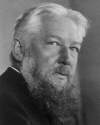 | At my urgent request the Curie laboratory, in which radium was discovered a short time ago, was shown to me. The Curies themselves were away travelling. It was a cross between a stable and a potato-cellar, and, if I had not seen the worktable with the chemical apparatus, I would have thought it a practical joke. Wilhelm Ostwald on seeing the Curie's laboratory facilities. |
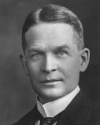 | The power of man to do work—one man-power—is, in its purely physical sense, now an insignificant accomplishment, and could only again justify his existence if other sources of power failed. … Curious persons in cloisteral seclusion are experimenting with new sources of energy, which, if ever harnessed, would make coal and oil as useless as oars and sails. If they fail in their quest, or are too late, so that coal and oil, everywhere sought for, are no longer found, and the only hope of men lay in their time-honoured traps to catch the sunlight, who doubts that galley-slaves and helots would reappear in the world once more? |
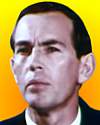 | It is infinitely better to transplant a heart than to bury it to be devoured by worms. |
| Before you look at today's web page, see if you can answer some of these questions about the events that happened on this day. Some of the names are very familiar. Others will likely stump you. Tickle your curiosity with these questions, then check your answers on today's web page. | |
| Births | |
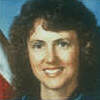 | Christa McAuliffe, born 2 Sep 1948, was a civilian astronaut on the 10th launch of the Challenger Space Shuttle, which exploded in midair, killing its crew of seven. What was her career? |
 | Frederick Soddy, born 2 Sep 1877, was an English chemist and physicist who received the Nobel Prize for Chemistry in 1921 for investigating radioactive substances. He coined the name now used for different species of atoms of the same element having a different atomic mass. What now ubiquitous name did Soddy provide for different species of atoms of the same element? What is the meaning of the Greek words he combined? To what do they refer? |
| Deaths | |
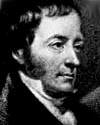 | William Henry (1775-1836) was an English physician and chemist, who proposed (1803) what is now called Henry's law, which refers to “The amount of a gas absorbed by a liquid is in proportion...” Can you complete this statement of Henry's Law? |
| Events | |
 | On 2 Sep 1985, it was announced that a U.S. and French expedition had located the wreckage of a sunken ship about 560 miles off Newfoundland, 73 years after the British luxury liner sank. What is the name of this vessel? |
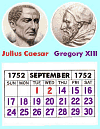 | The last day of the Julian calendar in Great Britain and the British colonies was 2 Sep 1752. The Gregorian Calendar designed to correct the extra leap year day problem went into effect the next day with tomorrow being numbered after dropping several days to realign the calendar. On the new calendar, what date followed 2 Sep 1752 on the old calendar? |
Fast answers for the previous newsletter for September 1: pernicious anemia • device that separates atoms or molecular fragments of different mass and measures those masses • pneumatic tube • subatomic particles having extremely short lifetimes and occurring only in high-energy nuclear collisions • passenger pigeon.
 If you enjoy this newsletter, the website, or wish to offer encouragement or ideas, please send feedback by using your mail reader Reply button.
If you enjoy this newsletter, the website, or wish to offer encouragement or ideas, please send feedback by using your mail reader Reply button. Your click on a Facebook, StumbleUpon, or other social button on the site webpages is also a welcome sign of appreciation. Thank you for using them.
© This newsletter is copyright 2020 by todayinsci.com. Please respect the Webmaster's wishes and do not put copies online of the Newsletter — or any Today in Science History webpage. (If you already have done so, please remove them. Thank you.) Offline use in education is encouraged such as a printout on a bulletin board, or projected for classroom viewing. Online, descriptive links to our pages are welcomed, as these will provide a reader with the most recent revisions, additions and/or corrections of a webpage. For any other copyright questions, please contact the Webmaster by using your mail reader Reply button.
--
If you do not want to receive any more newsletters, Unsubscribe
To update your preferences and to unsubscribe visit this link
Executive Real Estate Business Class
-
"It was like a man with wings. It wasn't like anything you'd see on TV or in a monster movie." ...
About the publisher
Search This Blog
Blog Archive
-
▼
2021
(585)
-
▼
September
(95)
- 800-Year-Old Tomb Discovered in Peru
- 600-Year-Old Muisca Jars Recovered in Colombia
- Human Footprints in North America Dated to 23,000 ...
- September Quiz
- Gas pipe workers find 800-year-old burial bundles
- Gas pipe workers find 800-year-old burial bundles
- Dark Destiny!
- Long-Distance Trade Detected in Genomes of Siberia...
- Composition of Stone Tools From Roman Morocco Anal...
- New Thoughts on Maya Pyramid in El Salvador
- This Civil War–Era Eagle Sculpture Was Made Out of...
- Roman gold coins found off coast of Spain
- Roman gold coins found off coast of Spain
- Review of The Bombay Prince by Sujata Massey, a my...
- DNA Analysis Identifies Japanese Ancestors
- Ritual Objects Discovered in Northern Egypt
- 'Band of Brothers' Stars Reflect on the Epic Minis...
- ‘Cake mummy’ survived WWII bombing of Lübeck
- ‘Cake mummy’ survived WWII bombing of Lübeck
- Am I my heroines?
- Medieval Mass Graves Excavated in Lebanon
- Three Phases of Wooden Wagon Way Uncovered in Scot...
- Rare Shell Artifacts Discovered in South Australia
- Burned Layer at Jamestown Linked to Bacon’s Rebellion
- Burned Layer at Jamestown Linked to Bacon’s Rebellion
- Painted 14th c. burial vaults found in Bruges
- Painted 14th c. burial vaults found in Bruges
- Possible Grave of Medieval Christian Hermit Excava...
- My notebook and I got drenched and my story was bo...
- Woman buried with heavy bronze jewelry found in in...
- Woman buried with heavy bronze jewelry found in in...
- Birthdays in History
- Teaching "All Men are Created Equal" (Part II)
- Psychologically Speaking, Who Were the Heads of th...
- Christmas Roses
- For Constitution Day, Let's Toast the Losers of th...
- We are All Becoming Cassandras: Leaders Must Heed ...
- Inequality Tends to Reach Political Tipping Points...
- The Roundup Top Ten for September 17, 2021
- Memo From Irish History: Welcome to Your Future, A...
- Rediscovered early drawing by Van Gogh on display
- Rediscovered early drawing by Van Gogh on display
- Hispano-Visigothic grave found at Spain cave hermi...
- Hispano-Visigothic grave found at Spain cave hermi...
- Searching for the Fisher Kings
- Bone Tools in Morocco May Be Earliest Evidence of ...
- Did Eurasia’s Early Bronze Age Pastoralists Drink ...
- The Trousseau
- Wood lion head recovered from Finnish shipwreck
- Wood lion head recovered from Finnish shipwreck
- The Floating Book by Michelle Lovric, a sensual no...
- Sculpture of Lord Ganesha Uncovered in Southeaster...
- Saudi Arabia’s Rock-Cut Camels Redated
- Possible Parietal Art Discovered on the Tibetan Pl...
- Renaissance shield looted by Nazis returned to Cze...
- Renaissance shield looted by Nazis returned to Cze...
- Anglo-Saxon Silver Brooch Recovered in England
- Roman Sewer System Discovered in Turkey
- Face of “Dutch Neanderthal” Reconstructed
- Gupta-Period Temple Found in Northern India
- The Polynesian 'Prince' Who Took 18th-Century Engl...
- When George Washington Took a Road Trip to Unify t...
- On 9/11, a Flotilla of Ferries, Yachts and Tugboat...
- Southern Tomb in Djoser funerary complex opened
- Southern Tomb in Djoser funerary complex opened
- Ask A Wench — What We've Been Watching
- Possible Prehistoric Campsite Uncovered in Norther...
- Statue of Roman Emperor Hadrian Unearthed in Turkey
- When George Washington Took a Road Trip to Unify t...
- Byzantine-era axe, machete found in ancient city
- Byzantine-era axe, machete found in ancient city
- Early Hollywood is a family affair in The Limits o...
- Maya rulers installed in Met’s Great Hall
- An Interview with Susanna Kearsley
- ENTER THE HEART OF DARKNESS | Legend of the Supers...
- ENTER THE HEART OF DARKNESS | Legend of the Supers...
- The Disturbing Case of Xavier Dupont de Ligonnès
- Newsletter for Sunday 12 September.
- Newsletter for Saturday 11 September.
- ‘Rise and Fall: The World Trade Center’ Premieres ...
- Newsletter for Friday 10 September.
- Newsletter for Thursday 9 September.
- Newsletter for Wednesday 8 September.
- Holiday savings - extended!
- Support Black-Owned Businesses: 181 Places to Star...
- Newsletter for Tuesday 7 September.
- Holiday savings for the whole family!
- Newsletter for Monday 6 September.
- Three All-New 9/11 Documentaries
- Newsletter for Sunday 5 September.
- Newsletter for Saturday 4 September.
- Labor Day Sale at the History Store
- Newsletter for Friday 3 September.
- Newsletter for Thursday 2 September.
- Newsletter for Wednesday 1 September.
-
▼
September
(95)
-
Blogroll
-
About
HistoryFact










0 comments:
Post a Comment